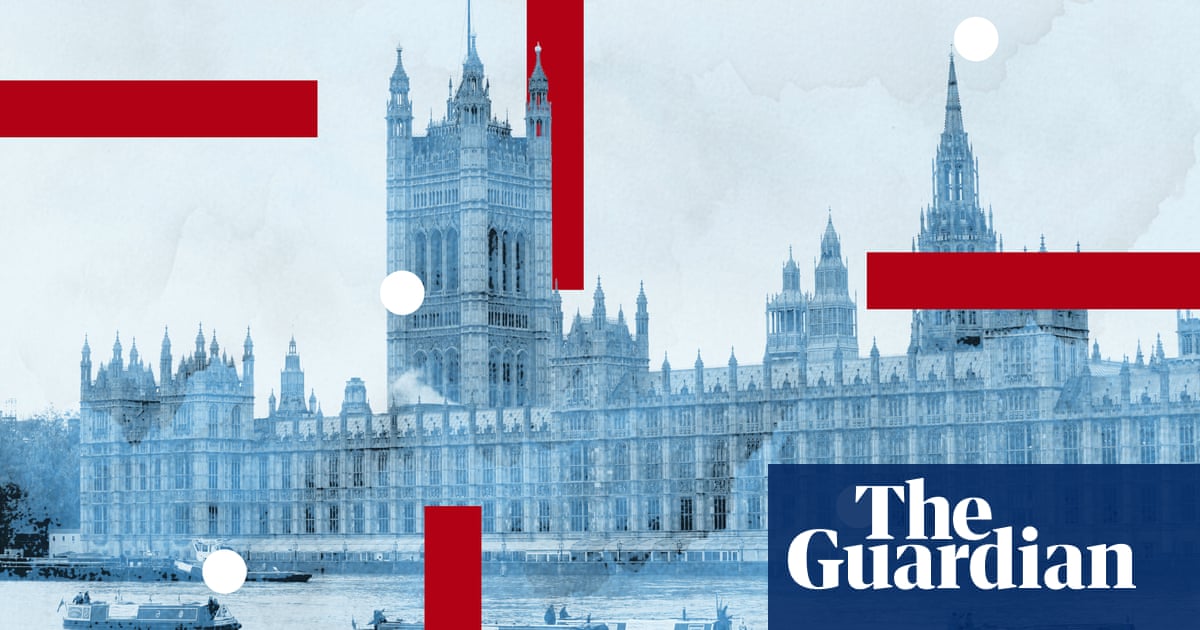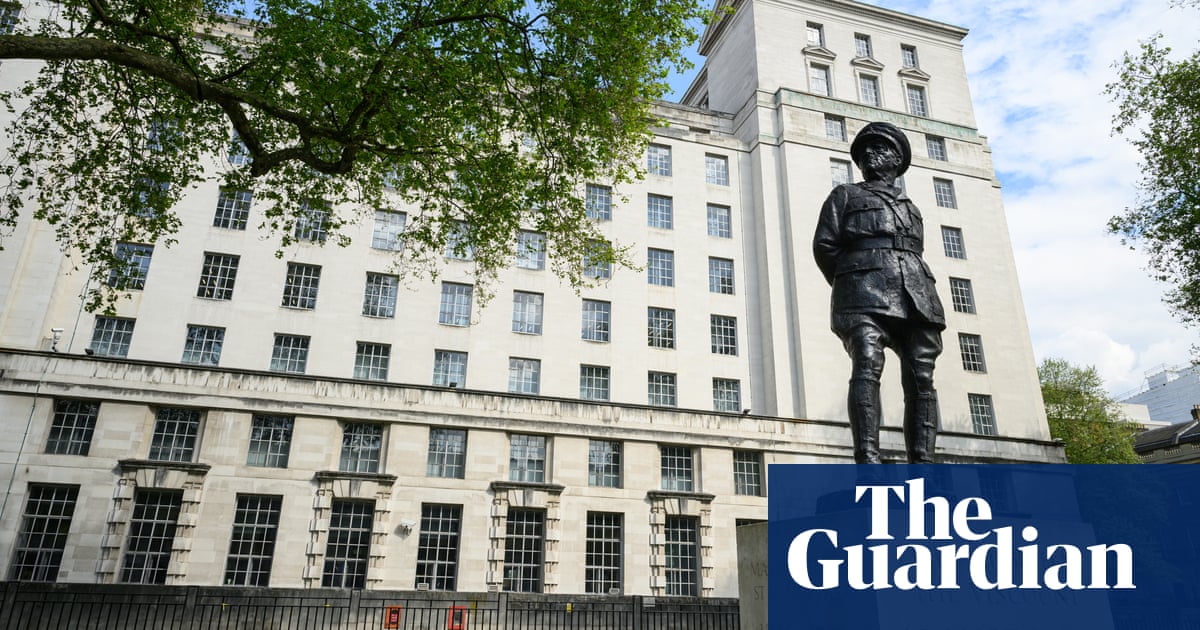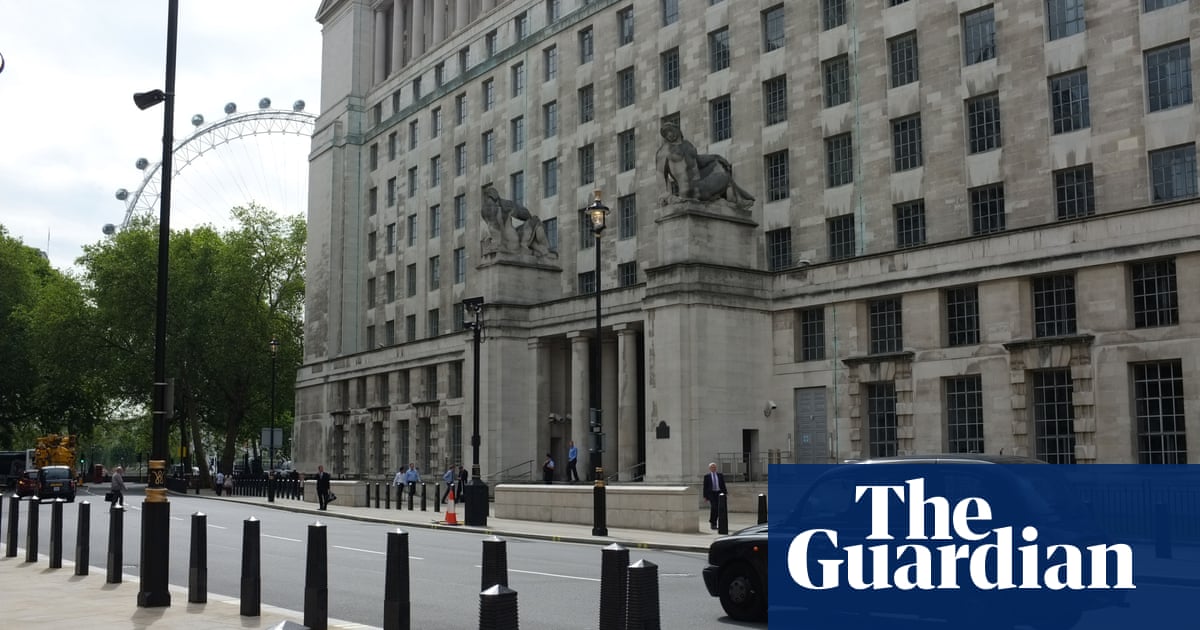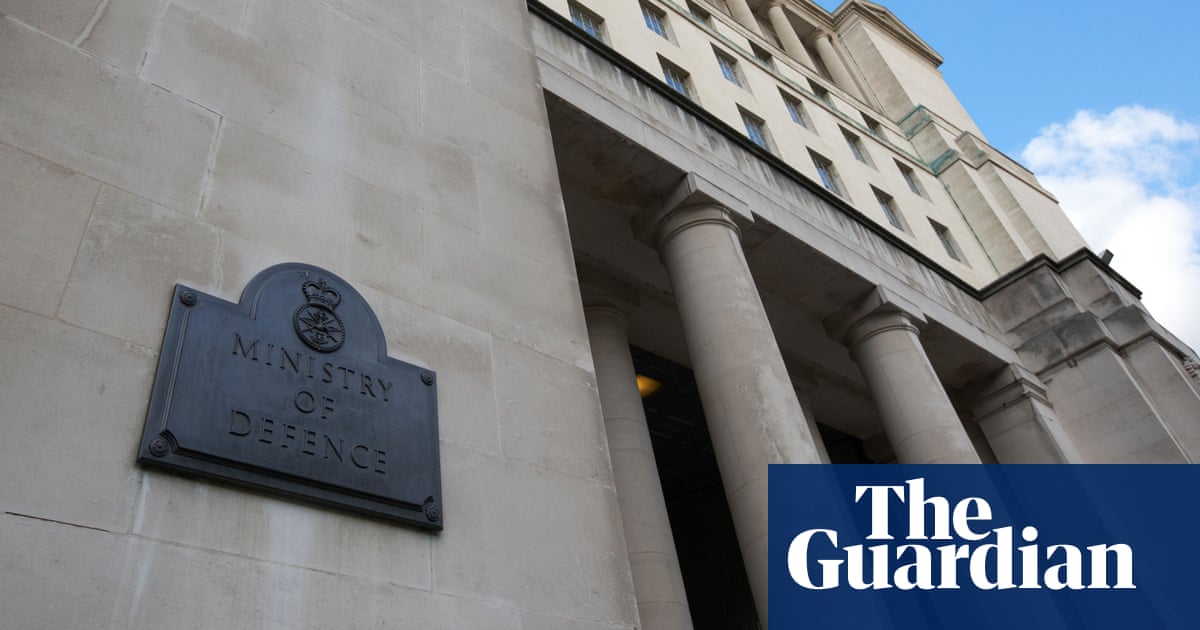
It is impossible not to conclude from the latest revelations that the Ministry of Defence faces a crisis of sexism, an epidemic of harassment – and in some cases the allegations are far worse.
The complaints, compiled by 60 senior civilian women in the department, include allegations so comprehensive it gives the impression its culture of sexism is institutionalised.
There is a “senior civil servant” who groped a female colleague at a Christmas party, and she was later advised not to talk about it. There are the group of “junior military officers” who kept an Excel spreadsheet of whom they rated most attractive and “what they thought they’d be like in bed”.
Everyday sexism is reported to be pervasive at the heart of the department’s culture. “I avoid walking through the Pillared Hall alone,” says one, referring to the vast atrium at the heart of the MoD’s Main Building in Whitehall. “The groups of men staring is horrible.”
Nominally, 39.8% of MoD civilian personnel are women. But among the military, the figure is far lower, 11.4%, and in Whitehall the cultures blend in favour of male domination. Another woman reports that she tallied in her notebook the number of women in senior policy meetings. She said she attended multiple meetings chaired by Adm Sir Tony Radakin, the chief of defence staff, where “I was the only woman in the room”.
Others reported “being consistently mistaken for a military officer’s PA [personal assistant] by men” or being ushered to the back seats, or having men say: “I think what she’s trying to say is …”
It is not the only such crisis facing the MoD. Earlier this month, a report into the Red Arrows concluded that an unacceptable culture of sexism, harassment and bullying was allowed to flourish. Male sexual entitlement was such that women were “being viewed as ‘property’” of the air display team.
The most significant revelations were from the Commons defence subcommittee’s examination of life for women across the armed forces. One in 10 female soldiers gave evidence, telling of gang rape, sex for promotion or advancement, and trophies or contests to “bag the women” on camp or on ship.
A 19-year-old gunner, Jaysley Beck, is believed to have killed herself at Larkhill Camp, Wiltshire, in December 2021 following constant sexual harassment from her boss, who unsuccessfully sought a relationship with her. He sent her more than 3,500 WhatsApp messages and voicemails, an official report said.
Nine rapes were reported to civilian police at the Harrogate military college, which trains 16- and 17-year-olds for careers in the British army, over a 13-month period to the middle of August this year. One instructor, Cpl Simon Bartram, was sentenced in January 2023 to 20 months’ detention, after being found guilty at court martial of sexual assault and eight counts of cruel or indecent disgraceful conduct.
As the allegations have mounted, there has been a response from the MoD, most notably to remove the chain of command from all complaints of a sexual nature, although this does not apply to civil servants. However, many women who serve say they do not have faith in the updated complaints system, which they argue is not truly independent despite the changes.
There have been no shortage of inquiries, but there is a question over how much engagement there is at the top. Five weeks ago, for example, Becks’ family wrote to Grant Shapps, the new defence secretary, asking him to consider changing the system, not least because, despite the harassment she received, she never made a complaint about her boss. Shapps has yet to reply.
On Thursday, when the Guardian initially asked the MoD what action it was taking in response to the civil servants’ letter, it would only say it was deeply concerned and “we are taking action”. Word only came later from Shapps, via an aide, who said he was utterly appalled and that there was “no place for this kind of 1970s behaviour” in his department.
The department’s stated ambition is to change the culture by increasing the number of women it recruits into the military, aiming to reach 30% by 2030. It is a laudable goal, but if the reports from both the civilian and military branches of the service are anything to go by, how many girls and women will find such careers attractive?












